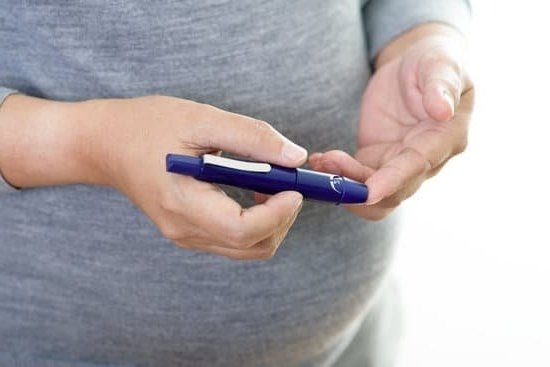What are the earliest signs of pregnancy? Recognizing these signs is crucial for expectant mothers and those trying to conceive. Whether it’s a missed period, fatigue, or changes in appetite, understanding the early symptoms can help individuals plan and prepare for the next nine months. According to statistics, many women experience at least one symptom within the first few weeks of pregnancy, making it essential to be informed about what to look out for.
Understanding the earliest signs of pregnancy is essential for individuals who are trying to conceive or suspect they may be pregnant. Being able to recognize these symptoms can allow for early prenatal care and lifestyle adjustments that can benefit both the mother and baby.
In this article, we will delve into the various signs that indicate a possible pregnancy, offering insight on how to identify and manage these early symptoms. Additionally, we will provide tips and strategies for coping with the physical and emotional changes that come with early pregnancy.
As we explore each symptom in detail, it’s important to remember that every woman’s experience with early pregnancy is unique. By sharing personal anecdotes and relevant statistics throughout this article, we hope to engage our readers and provide them with valuable information as they navigate this new chapter in their lives. So let’s dive in and learn more about the earliest signs of pregnancy and how to best manage them.
Missed Period
Having a missed period is often the first sign that prompts many women to suspect they may be pregnant. This is also the most well-known and common early sign of pregnancy. A missed period occurs when conception has taken place and the fertilized egg has attached to the uterine lining, leading to a halt in the menstrual cycle. This typically happens around two weeks after ovulation and fertilization.
It’s important for women to track their menstrual cycles in order to identify a missed period as one of the earliest signs of pregnancy. Understanding the length of their average cycle and being aware of any changes can help in recognizing when a period is late. There are various tools available, such as apps and calendars, that can assist in tracking menstrual cycles. Additionally, ovulation predictor kits can help pinpoint the most fertile days each month.
For those trying to conceive, it’s recommended to take a pregnancy test if a period is more than a week late. Home pregnancy tests are highly accurate when used correctly and can detect pregnancy hormones in urine as early as a few days before a missed period. It’s essential for women who suspect they may be pregnant due to a missed period to seek prenatal care if they receive a positive result on a home pregnancy test.
| Early Pregnancy Signs | Information |
|---|---|
| Missed Period | The most common early sign of pregnancy which occurs around two weeks after ovulation and fertilization. |
| Tracking Menstrual Cycles | Tools like apps, calendars, and ovulation predictor kits can help monitor cycles and aid in identifying missed periods. |
| Pregnancy Test | Highly accurate when used correctly; should be taken if period is more than a week late. |
Fatigue
During early pregnancy, the body produces higher levels of progesterone, which can lead to a feeling of drowsiness and the need for more rest. Additionally, the increase in blood volume and heart rate also result in more energy being used, leading to a sense of fatigue. All these changes combined can leave expectant mothers feeling drained and in need of more sleep.
To manage fatigue during early pregnancy, it is important for women to prioritize rest and relaxation. Finding time for short naps throughout the day can be helpful in combating feelings of exhaustion. It is also essential to maintain a balanced diet that includes plenty of iron-rich foods like spinach, lean meats, and beans which can help combat feelings of tiredness. Regular exercise and staying hydrated are also vital in maintaining energy levels during this period.
| Signs | Causes |
|---|---|
| Increased feelings of tiredness | Hormonal changes such as higher levels of progesterone |
| Increased need for rest | Increase in blood volume and heart rate leading to more energy usage |
| Managing fatigue | Prioritizing rest and relaxation; consuming iron-rich foods; regular exercise; staying hydrated |
Nausea and Morning Sickness
Coping Strategies
Coping with nausea and morning sickness during early pregnancy can be challenging, but there are several strategies that may help alleviate these symptoms. Eating small, frequent meals throughout the day instead of large meals can help keep blood sugar levels stable and prevent feelings of nausea.
Ginger-based products, such as ginger tea or ginger candies, have been reported to provide relief for some women. Additionally, staying hydrated by drinking plenty of water or clear fluids can help reduce feelings of queasiness.
Dietary Suggestions
Making dietary changes can also help manage nausea and morning sickness. Avoiding spicy, greasy, or strong-smelling foods may decrease feelings of nausea. Some women find that consuming bland foods like crackers or dry toast before getting out of bed in the morning helps settle their stomachs. It is essential to speak with a healthcare provider about dietary changes for managing nausea and morning sickness during pregnancy to ensure proper nutrition for both mom and baby.
Understanding these early signs of pregnancy like nausea and morning sickness is essential so that expectant mothers can better care for themselves during this delicate time period. If you are experiencing severe or prolonged symptoms, it is crucial to seek medical advice from a healthcare professional to ensure the health and safety of both yourself and your baby during this critical stage of development.
Breast Changes
During early pregnancy, many women experience changes in their breasts as one of the earliest signs of pregnancy. These changes can include tenderness, swelling, and even darkening of the nipples. It’s important to recognize these changes and understand why they occur in order to manage any discomfort and prepare for the upcoming months.
Physical Changes
One of the earliest signs of pregnancy is breast tenderness. This can be caused by hormonal changes as the body prepares for breastfeeding. In addition to tenderness, many women also experience an increase in breast size and noticeable veins on the surface of the skin. Understanding these physical changes can help women feel more prepared for the later stages of pregnancy and breastfeeding.
Hormonal Reasons
The hormonal changes that occur during early pregnancy are responsible for many of the breast changes experienced by women. Increased levels of estrogen and progesterone can cause the breast tissue to swell and become more sensitive. These hormones also stimulate the milk ducts in preparation for breastfeeding, leading to further changes in the breasts.
Comfortable Bras
As breasts go through these physical and hormonal changes, it’s important for women to find comfortable bras that provide proper support. Many women find relief from breast tenderness by wearing a bra that fits well and offers adequate support. It may be necessary to invest in new bras with a larger cup size or additional features such as wider straps or cushioned underwire.
Understanding and managing these early signs of pregnancy can help women navigate their first trimester with greater ease and comfort. By recognizing and addressing breast changes early on, expectant mothers can take proactive steps towards ensuring a healthy and happy pregnancy journey.
Increased Urination
During the early stages of pregnancy, many women experience increased urination as one of the earliest signs of pregnancy. This symptom can often be overlooked or attributed to other factors, but it is important to recognize it as a potential indicator of pregnancy. What are the earliest signs of pregnancy? Understanding the changes in your body and being aware of these early symptoms can help you determine if you may be pregnant.
The increased frequency of urination in early pregnancy is due to hormonal changes that cause an increase in blood flow to the kidneys, leading to more efficient removal of waste from the body. Additionally, as the uterus expands and puts pressure on the bladder, this can also contribute to the need for more frequent trips to the bathroom. It is essential for individuals experiencing this symptom to stay hydrated throughout this time.
To manage frequent urination during early pregnancy, it is important for individuals to monitor their fluid intake and avoid consuming large amounts of liquids before bedtime. Additionally, practicing pelvic floor exercises can help strengthen the muscles that control urination, potentially reducing leakage or urgency.
It is also advised to wear panty liners or pads for added protection against unexpected leaks. While increased urination can be inconvenient at times, it is a normal part of early pregnancy and should be managed with self-care and attention to one’s bodily needs.
Food Aversions and Cravings
During the early stages of pregnancy, many women experience changes in their taste and appetite, leading to food aversions and cravings. These changes can be some of the earliest signs of pregnancy and can have a significant impact on the expectant mother’s diet and overall well-being. It’s important for women to understand these changes and learn how to manage them effectively for a healthy pregnancy.
Hormonal factors play a significant role in food aversions and cravings during early pregnancy. The surge in hormones, particularly estrogen and progesterone, can alter a woman’s sense of taste and smell, making certain foods unappealing while intensifying cravings for others. This shift in taste preferences can make it challenging for pregnant women to maintain a balanced diet, as they may avoid healthy foods due to aversions or indulge excessively in less nutritious options due to cravings.
To cope with these changes, it is essential for expectant mothers to find ways to navigate their altered appetites while still meeting their nutritional needs. One strategy is to focus on consuming small, frequent meals that include a variety of nutrient-dense foods.
Additionally, keeping healthy snacks readily available can help satisfy cravings without relying on less nutritious options. It’s also beneficial for pregnant women to communicate their dietary challenges with their healthcare provider, who can offer tailored advice and support.
Overall, understanding the reasons behind food aversions and cravings in early pregnancy is crucial for expectant mothers to make informed decisions about their diet and nutrition. By recognizing these signs as normal parts of pregnancy, women can navigate these changes more confidently while prioritizing their own health as well as that of their baby.
Mood Swings and Emotional Changes
During the early stages of pregnancy, many women experience mood swings and emotional changes that can be quite overwhelming. These changes are often attributed to the hormonal fluctuations that occur during pregnancy, as well as the significant life changes that come with the prospect of becoming a parent. It’s important for women to recognize and understand these emotional shifts in order to take steps to manage them effectively.
Hormonal and Psychological Reasons for Mood Swings
The hormonal changes that accompany pregnancy, particularly the increase in estrogen and progesterone levels, can have a significant impact on a woman’s mood. These hormonal shifts can lead to feelings of irritability, anxiety, and even depression in some cases. Additionally, the psychological factors related to adjusting to the idea of becoming a parent can also contribute to mood swings and emotional highs and lows.
Strategies for Managing Emotional Changes
Managing emotional changes during early pregnancy is crucial for overall well-being. It’s essential for women to prioritize self-care and seek support from their partners, family members, or friends. Engaging in activities that promote relaxation, such as prenatal yoga or meditation, can also help manage mood swings. Seeking professional help from a therapist or counselor is another effective strategy for coping with emotional changes.
The Importance of Self-Care and Support
Self-care is essential for maintaining emotional wellness during early pregnancy. This includes getting adequate rest, eating well-balanced meals, and engaging in activities that bring joy and relaxation. It’s also important for women experiencing mood swings to communicate openly with their partners about their feelings and seek support when needed. By prioritizing self-care and seeking help when necessary, women can effectively manage the emotional changes that come with early pregnancy.
Conclusion
In conclusion, being able to recognize the earliest signs of pregnancy is crucial for women who are trying to conceive or suspect that they may be pregnant. From missed periods to fatigue, nausea, breast changes, and mood swings, there are a variety of indicators that can point to the possibility of pregnancy. Understanding and being attuned to these signs can help individuals make informed decisions about their health and seek appropriate medical care.
For those wondering “what are the earliest signs of pregnancy,” it’s important to remember that every woman’s experience with early pregnancy symptoms can differ. As highlighted in this article, some common indicators include missed periods, fatigue, nausea and morning sickness, breast changes, increased urination, food aversions and cravings, as well as mood swings and emotional changes.
By being aware of these potential signs, individuals can take proactive steps towards confirming a pregnancy and taking care of their physical and emotional well-being.
If you suspect you may be pregnant or are actively trying to conceive, it is recommended to consult a healthcare professional for confirmation and guidance. Furthermore, seeking support from loved ones or joining online communities dedicated to pregnancy can provide valuable resources and encouragement during this important time in your life. Ultimately, understanding the early signs of pregnancy empowers individuals to make informed choices about their reproductive health and seek the necessary care and support.
Frequently Asked Questions
What Symptoms Do You Have at 1 Week Pregnant?
At 1 week pregnant, a woman may not experience any noticeable symptoms yet. Since conception typically occurs around the end of the first week, it’s unlikely for any pregnancy-related symptoms to manifest this early.
How Soon Do Early Pregnancy Symptoms Start?
Early pregnancy symptoms can start as early as one or two weeks after conception. For some women, this may include changes in breast tenderness, fatigue, nausea, or even a heightened sense of smell. However, every woman’s experience with early pregnancy symptoms can vary.
How Soon Can You Tell if You’re Pregnant?
It is possible to tell if you’re pregnant as soon as one week after conception using sensitive pregnancy tests. However, for most women, it’s more common to detect the presence of the pregnancy hormone hCG around 11-14 days after conception with a home pregnancy test.
For a more accurate result, it’s best to wait until you’ve missed your period before taking a test.

Welcome to my fertility blog. This is a space where I will be sharing my experiences as I navigate through the world of fertility treatments, as well as provide information and resources about fertility and pregnancy.





